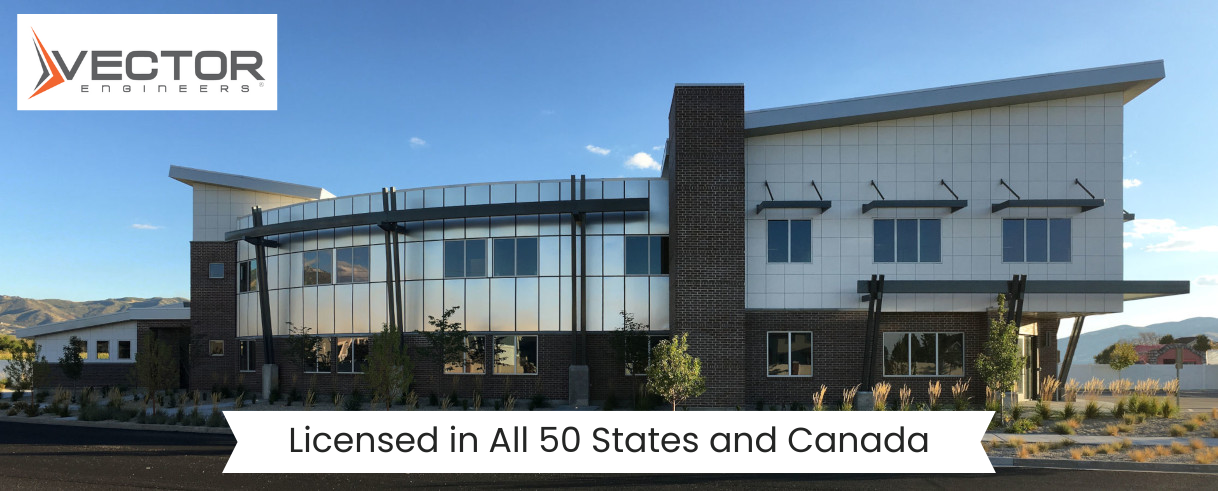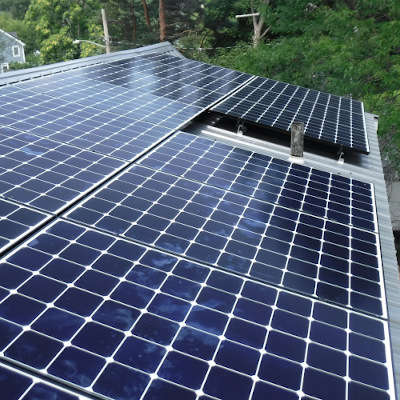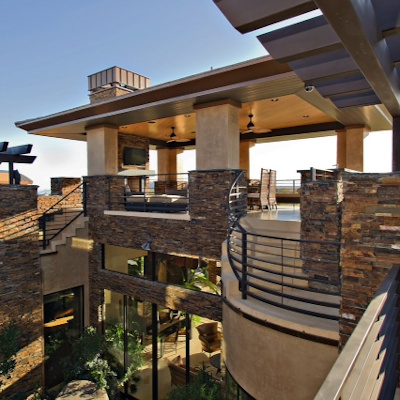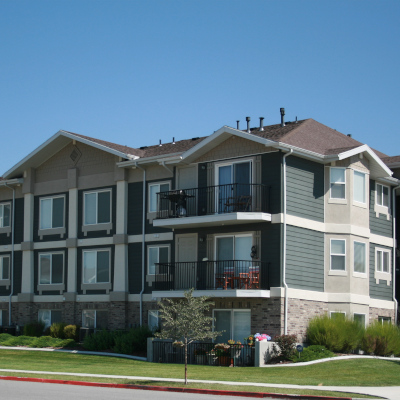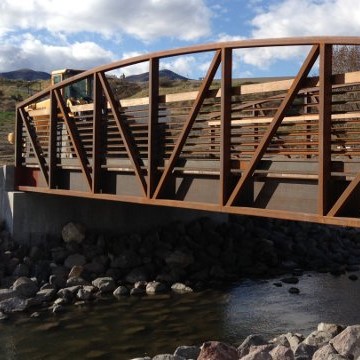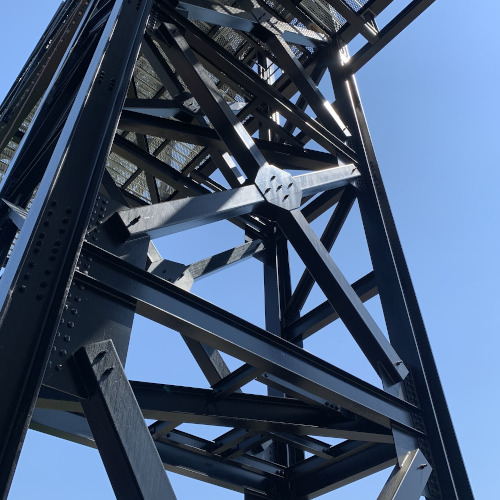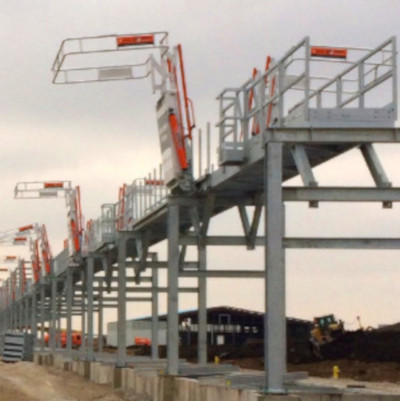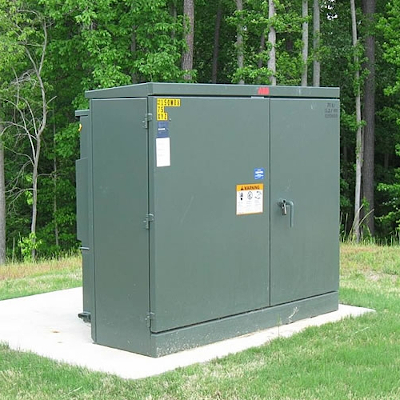Phoenix Residential Structural Engineer
A residential structural engineer plays a crucial role in the construction and design of residential buildings in Phoenix. With their expertise in analyzing and assessing the stability of structures, these professionals ensure that homes are safe, secure, and able to withstand various environmental factors. This article will explore the responsibilities of a residential structural engineer, the importance of their work in residential construction, the process they follow, tips for hiring the right engineer, common structural problems in Phoenix, and future trends in the field of residential structural engineering.
Understanding the Role of a Residential Structural Engineer
A residential structural engineer is responsible for designing, evaluating, and inspecting structural components of residential buildings. They work closely with architects, builders, and homeowners to ensure that the structural integrity of a home is maintained throughout the construction process. From the initial design phase to the ongoing maintenance of a structure, these engineers provide a vital perspective to ensure safety and durability.
Key Responsibilities of a Structural Engineer
One of the primary responsibilities of a residential structural engineer is to assess the ability of a structure to withstand loads and forces it may encounter. This involves evaluating the design, materials, and construction methods used. Additionally, structural engineers must consider local building codes, regulations, and environmental conditions when making assessments and recommendations. They are also responsible for identifying any potential risks or problems and developing appropriate solutions.
Importance of Structural Engineering in Residential Construction
Structural engineering is of paramount importance in residential construction. By ensuring that a home can withstand the forces of nature and the weight of its occupants, structural engineers contribute to the safety and longevity of the building. They consider factors such as seismic activity, wind loads, and soil conditions to design structures that can withstand these forces. The expertise of a residential structural engineer helps to minimize the risk of structural failures, which can have catastrophic consequences for homeowners.
The Process of Residential Structural Engineering
Residential structural engineering involves several stages to ensure the safety and stability of a building. The process typically includes an initial consultation and site analysis, designing and planning structural elements, and overseeing construction and ensuring safety.
Initial Consultation and Site Analysis
During the initial consultation, the structural engineer will meet with the architect, builder, or homeowner to discuss project requirements and goals. They will conduct a thorough site analysis to assess the existing conditions, including the soil composition, topography, and any potential challenges that may impact the structural design. This analysis forms the basis for the engineer’s design and helps them identify any potential risks or limitations.
Designing and Planning Structural Elements
After the initial consultation and site analysis, the structural engineer will proceed with designing and planning the structural elements of the residential building. This includes determining the appropriate materials, dimensions, and configurations of load-bearing components such as beams, columns, and foundations. The engineer will ensure that the design conforms to local building codes and regulations while also considering factors such as environmental sustainability and cost-effectiveness.
Overseeing Construction and Ensuring Safety
Once the design phase is complete, the residential structural engineer plays a vital role in overseeing the construction process. They will monitor the implementation of the structural design, ensuring that the contractors follow the approved plans and specifications. This includes conducting regular inspections, reviewing construction progress, and ensuring that all necessary safety measures are in place. By actively participating in the construction process, structural engineers can identify and resolve any issues or concerns promptly.
Hiring a Phoenix Residential Structural Engineer
When hiring a residential structural engineer in Phoenix, there are several factors to consider in order to make an informed decision.
Factors to Consider When Hiring a Structural Engineer
First and foremost, it is essential to verify that the engineer holds the necessary licenses and certifications. These credentials ensure that the engineer has the required knowledge and expertise to handle residential structural projects. Additionally, it is important to review the engineer’s past projects and references to assess their experience and reputation. A reputable engineer should have a strong portfolio and positive client feedback.
Understanding the Cost of Hiring a Structural Engineer
The cost of hiring a residential structural engineer can vary depending on several factors. These factors include the complexity of the project, the engineer’s level of experience, and their fee structure. It is important to discuss the engineer’s fees and payment terms upfront to avoid any surprises. While cost is an important consideration, it should not be the sole determining factor. It is crucial to prioritize the engineer’s qualifications, expertise, and track record when making a decision.
Common Residential Structural Problems in Phoenix
Phoenix’s unique climate and geological conditions can give rise to specific structural problems in residential buildings. Becoming familiar with these issues can help homeowners and builders take preventative measures and address any problems promptly.
Soil-Related Issues and Their Impact on Structures
The expansive nature of the soil in Phoenix can lead to foundation problems in residential structures. The soil’s high clay content and the region’s extreme temperature fluctuations can cause the soil to contract and expand. This movement exerts pressure on the foundation, leading to cracks and settlement. Proper foundation design and construction techniques, along with regular maintenance, are crucial in mitigating these soil-related issues.
Dealing with Structural Damage from Extreme Weather Conditions
Phoenix is known for its extreme heat, monsoon storms, and occasional flash floods. These weather conditions can pose challenges to the structural integrity of residential buildings. Excessive heat can cause materials to expand and contract, which may lead to cracks or warping. Monsoon storms, on the other hand, can generate strong winds and intense rainfall, potentially causing damage to roofs, walls, and foundations. It is essential for homeowners to ensure proper maintenance and regular inspections to identify and address any weather-related damage promptly.
Future Trends in Residential Structural Engineering
As technology and sustainability continue to evolve, residential structural engineering is experiencing several noteworthy trends.
The Rise of Sustainable and Eco-Friendly Engineering Practices
With growing concerns about climate change and environmental impact, there is an increasing emphasis on sustainable and eco-friendly engineering practices. Residential structural engineers are incorporating green building principles into their designs, such as using renewable materials, optimizing energy efficiency, and implementing water-saving measures. These practices not only benefit the environment but also contribute to lower energy costs and enhanced comfort for homeowners.
Technological Innovations in Structural Engineering
The field of residential structural engineering is benefiting from technological advancements that aid in design, analysis, and construction processes. Computer-aided design (CAD) software allows engineers to create precise and detailed structural models, facilitating collaboration with architects and builders. Additionally, virtual reality (VR) and augmented reality (AR) technologies are being utilized to enhance visualization and improve construction efficiency. These technological innovations are streamlining the design and construction phases, leading to more efficient and cost-effective residential projects.
In conclusion, a residential structural engineer in Phoenix plays a crucial role in ensuring the safety, durability, and stability of residential buildings. Their responsibilities include assessing structural integrity, designing load-bearing elements, and overseeing construction to ensure adherence to safety standards. When hiring a structural engineer, factors such as licenses, experience, and reputation should be considered. Common structural problems in Phoenix include soil-related issues and damage from extreme weather conditions. The future of residential structural engineering is focused on sustainable practices and technological advancements that enhance design and construction processes.
What our customers have to say
“I have had the pleasure of working with the Engineers at Vector for over 10 years. Over that time they have continually proven themselves in their quality of work, dedication to their craft, and in meeting tight deadlines. They have gone out of their way to learn and understand our designs to ensure their results are as accurate and reasonable as possible. I would highly recommend them to anyone.”
“DBM Solar Design & Consulting has been working with Vector now for 5 years. We have not worked with any other engineering firm outside of Vector and there is a reason for that. All the engineers that I have worked with have all been most accommodating in every aspect of our solar engineering projects.”
“We have had a very smooth transition from our previous engineering firm to your company. Since we made the move, the turnaround times have been very quick and consistent, and we haven’t had to stress over our structural stamps — which has been a great relief. Many thanks to you and the rest of your team.“
“Over the course of my ten years in the industry, I’ve used probably 30 different PE firms, and Vector has just out-performed them in every way. Speed. Quality. Price. We operate in 900 cities and towns in seven states, and all the jurisdictions appreciate their verbiage, layout and calculations. We never have issues with anybody questioning their work.”
“Over the course of my ten years in the industry, I’ve used probably 30 different PE firms, and Vector has just out-performed them in every way. Speed. Quality. Price. We operate in 900 cities and towns in seven states, and all the jurisdictions appreciate their verbiage, layout and calculations. We never have issues with anybody questioning their work.”
“We have had a very smooth transition from our previous engineering firm to your company. Since we made the move, the turnaround times have been very quick and consistent, and we haven’t had to stress over our structural stamps — which has been a great relief. Many thanks to you and the rest of your team.“
“I have had the pleasure of working with the Engineers at Vector for over 10 years. Over that time they have continually proven themselves in their quality of work, dedication to their craft, and in meeting tight deadlines. They have gone out of their way to learn and understand our designs to ensure their results are as accurate and reasonable as possible. I would highly recommend them to anyone.”
“DBM Solar Design & Consulting has been working with Vector now for 5 years. We have not worked with any other engineering firm outside of Vector and there is a reason for that. All the engineers that I have worked with have all been most accommodating in every aspect of our solar engineering projects.”

Providing Structural & Electrical Engineering services in all 50 states plus Washington D.C., Puerto Rico and Canada.


